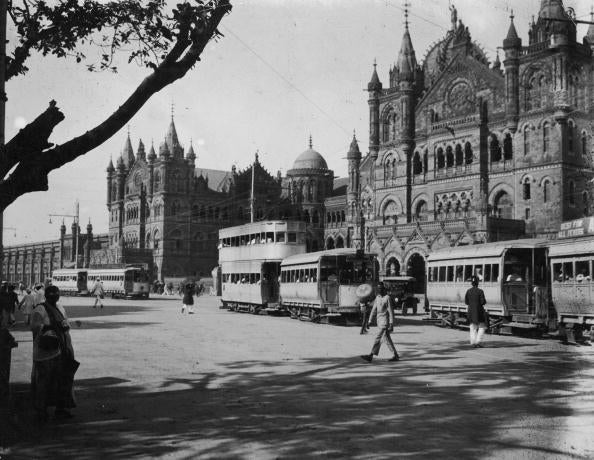Amol Rajan is wrong: the gateway to India is Mumbai, not 'Bombay'

Your support helps us to tell the story
From reproductive rights to climate change to Big Tech, The Independent is on the ground when the story is developing. Whether it's investigating the financials of Elon Musk's pro-Trump PAC or producing our latest documentary, 'The A Word', which shines a light on the American women fighting for reproductive rights, we know how important it is to parse out the facts from the messaging.
At such a critical moment in US history, we need reporters on the ground. Your donation allows us to keep sending journalists to speak to both sides of the story.
The Independent is trusted by Americans across the entire political spectrum. And unlike many other quality news outlets, we choose not to lock Americans out of our reporting and analysis with paywalls. We believe quality journalism should be available to everyone, paid for by those who can afford it.
Your support makes all the difference.A few weeks ago the editor of this newspaper wrote that The Independent would begin using ‘Bombay’ rather than ‘Mumbai’ to describe the Indian city. Amol Rajan has advocated returning to using the Anglo-Portuguese colonial name ‘Bombay’ for the Indian city of Mumbai in order to protest extreme Hindu nationalism.
At first glance, it might seem rather counter-intuitive to combat an ideology that stems from sentiments of Hindu disenfranchisement and international Hinduphobia by endorsing colonial appropriation, in a British newspaper.
Some might go so far as to argue that calling India’s financial capital by the name given by its democratically elected government 21 years ago isn’t supporting right-wing extremists, as Rajan argued on the BBC. But, just perhaps, unilaterally re-imposing a colonial-era name on the south Indian city might reinforce their narrative.
Nevertheless, Rajan seemed so keen on the matter that I question why we don’t take it to its logical next step? The striking rise of the Front National in France and their brand of xenophobic French nationalism should surely merit teaching our neighbours to the south a lesson. Frankreich, their name under German occupation in the 1940s would hit home. Let’s not forget President Trump’s 2017 victory speech in Times Square to the people of New Amsterdam.
The issue of singularly attacking the worst excesses of Hindu nationalism by painting with too broad a brush, and the excess of 200 million voters who in 2014 backed the centre-right Hindu nationalist coalition, is confined to neither Rajan nor the Independent.
While Western commentators ought to condemn intolerance, illiberalism and jingoism wherever they may be, their explicit and somewhat discriminatory focus on India has led to what many inside the country label Hinduphobia. Take the BBC documentary on a horrifying rape case ‘India’s Daughter’, which had any comparisons to other countries, including the fact that sexual assault is more frequent in both England and the US, removed in the final version. The effect of this was to insinuate that rape is an endemic specific to India with Indian and Hindu culture at fault.
The New York Times offers another striking example of India’s special treatment by Western media. A piece by Gardiner Harris blames poor sanitation and malnutrition on “some ancient Hindu texts”, blaming one of the oldest belief systems in human history for an issue largely caused by poor infrastructure, overpopulation and attitudes. Now imagine exchanging diarrhoea for terrorism and Hinduism for Islam.
Donald Trump’s attribution of the crimes of a few Mexicans or Muslims to whole races or groups of people has earned well-deserved retribution. Yet it is a mystery to me why the Independent is punishing a landmass for the illegal actions of a tiny minority of extremists, especially when this will invigorate their siege mentality against a hostile Abrahamic world.
Hindus, like Muslims, Christians or Buddhists, are first and foremost human beings. They are prone to passion, anger and all other mortal traits. They are also influenced by a belief system in which peace, self-mastery and compassion for life are key tenets.
While some may stray from these principles, ultimately a recognition of our shared humanity and the validity of all belief systems will go much further than a semiotic attack on their independence.
Join our commenting forum
Join thought-provoking conversations, follow other Independent readers and see their replies
Comments